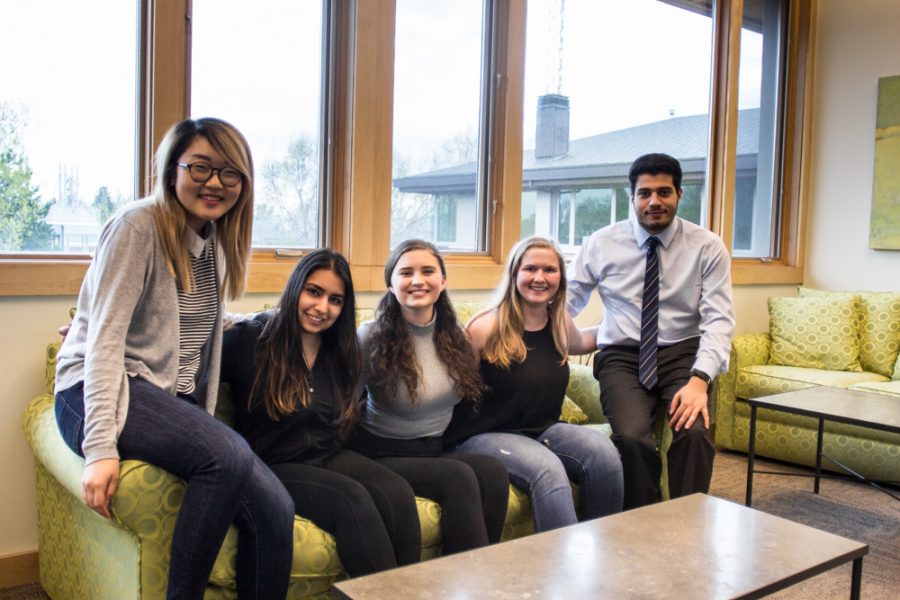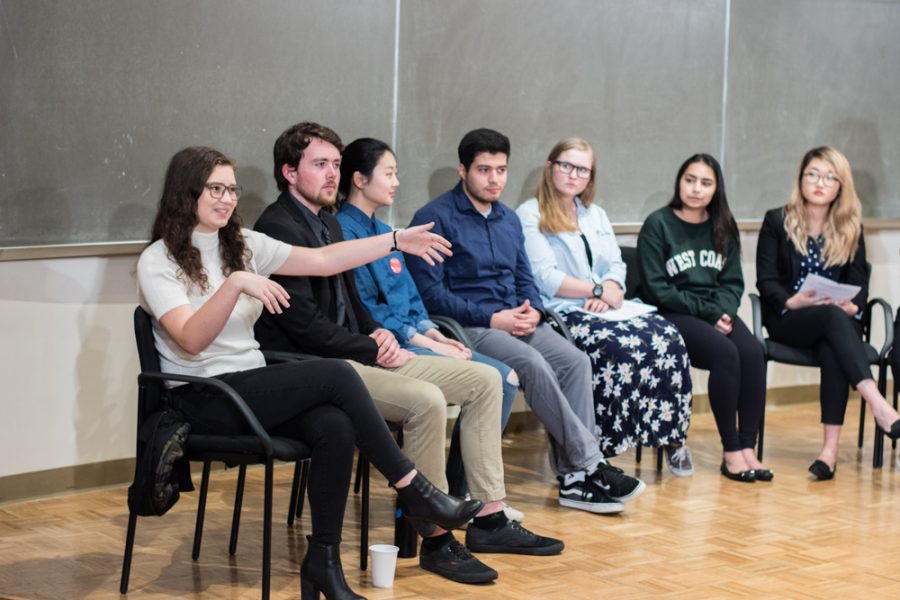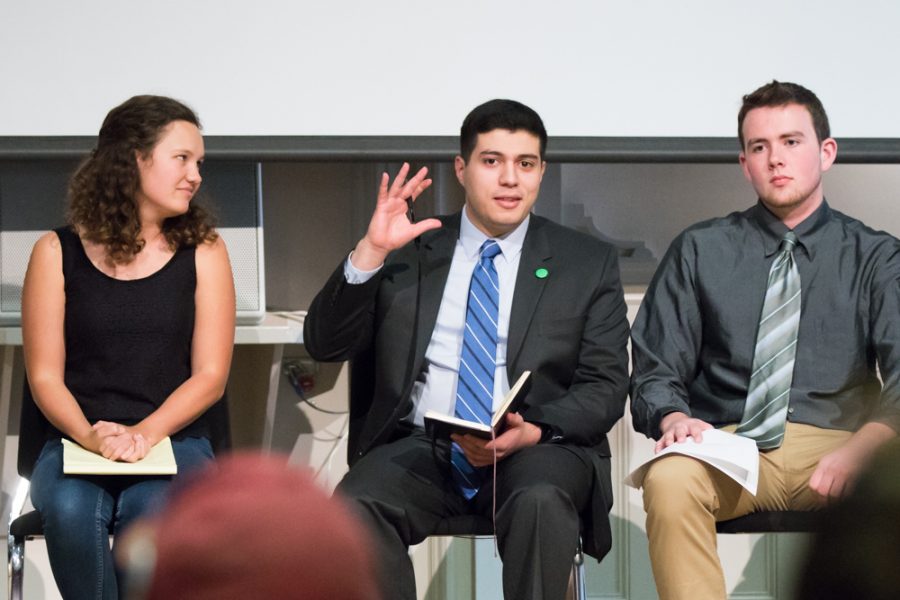The Associated Students of Whitman College considered two separate resolutions relating to next year’s Power and Privilege Symposium during the senate meeting on Sunday, April 6. The first resolution, which would have confirmed the spring 2015 symposium, was set aside for further revisions due to inconsistencies in the appointment of leadership for the symposium. The second, which called upon administrators to speak out in support of the ability of nontenured faculty to discuss controversial subjects such as racism on campus, was passed unanimously.
The risk to nontenured faculty became clear during the symposium this year. A disproportionate number of the professors involved in organizing the symposium were nontenured femaled faculty. This activity took away time which could otherwise be devoted to research or preparing for class, both of which are important activities that come under scrutiny when these faculty members are evaluated for tenure. In addition, campus politics are such that at times it may be difficult for nontenured faculty to speak out.
“I noticed when we were organizing the Power and Privilege Symposium this year … there were people who actively couldn’t engage with it because of not feeling that it was okay for them to,” said junior ASWC Senator Corinne Vandagriff, who wrote the resolution.
Nontenured faculty do not have the job security of tenured faculty. The decision on whether they will be promoted or let go is made by the Board of Trustees, who take into consideration the recommendation of the faculty personnel committee, which is made up of two representatives from each academic division.
“I don’t feel I need to censor myself around the Board of Trustees because I don’t need networking references from them, and they’re not going to get me expelled,” said Vandagriff. “My ability to say in front of the Board of Trustees ‘I don’t agree with that, and I think we should talk about this,’ isn’t necessarily something someone who was thinking about whether or not they were going to get tenure or whether or not they will keep their job would be doing.”
People of color and women already face greater challenges when working toward tenure, as they may be expected to take a more active role promoting diversity on campus than their counterparts who are white or male. However, this sort of service is not valued as highly as teaching or academic research when tenure decisions are made.
“[Service] is not looked upon as an ingredient that is as important to getting tenure as teaching and research. The way that that shakes out is that service takes a lot of time, and some people … may turn down the possibility of doing certain kinds of service to protect their time,” said Associate Professor of Sociology Helen Kim.
In addition to passing the resolution in support of nontenured faculty, ASWC considered renewing the resolution passed in previous years which establishes the coming year’s symposium. After some discussion, it was decided to revise the resolution and return it to the senate for the next meeting on Sunday, April 20.
The revision of the resolution will focus on clarifying the selection of the chairperson who leads the organization of the symposium. This year, the role was held by sophomore Special Initiatives Director Shireen Nori. Technically, these roles are supposed to be separate, as the Special Initiatives Director is a position which may be appointed by the ASWC president to fill the open space on the ASWC executive council, and the symposium chairperson is to apply to the nominations committee and be ratified by the senate. By clearly separating the positions, it will be possible for next year’s president to design a new position for the executive council, as is his or her right. If she chooses to keep the position of Special Initiatives Director, this person may still apply to be the symposium chairperson but will have to go through the nomination process alongside other candidates.
“We just want to make sure [the Power and Privilege Symposium] is codified and happens to a similar extent as it did this year,” said sophomore ASWC Vice President Jack Percival.+








